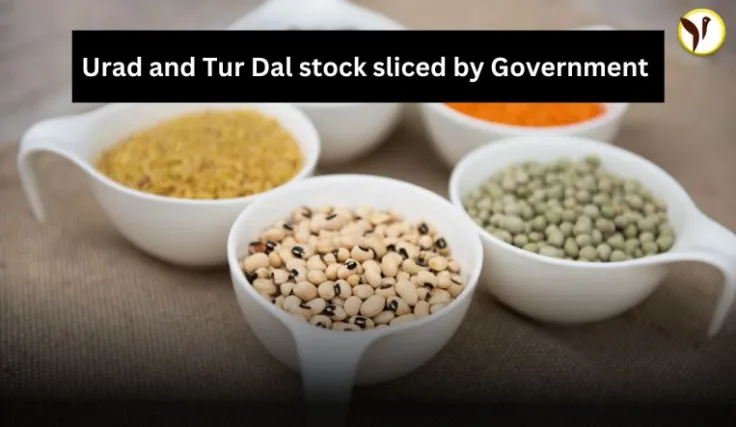In response to rising food prices, the Indian government has reduced the stock limit for two pulses, tur and urad dal, held by wholesalers and large retail chains to one-quarter of its previous level. The stock limit has been reduced from 200 tonnes to 50 tonnes until December 31, the lowest in recent years. Miller stocks have also been reduced, with importers prohibited from holding stocks for more than 30 days after shipments are cleared by customs.
The consumer affairs department increased the stock limit to prevent hoarding and ensure the continuous availability of pulses on the market. Production fell last year, and Kharif sowing is down this year. Furthermore, imports are not arriving as expected due to issues in certain countries, resulting in less supply, according to an officer.
In the last month, the average retail price of tur increased by Rs 10 per kg to Rs 149 per kg, while urad dal increased by Rs 2 to Rs 118 per kg. The retailer stock limit, however, has remained unchanged at five tonnes.
The government also stated its intention to sell more wheat on the open market in order to keep food prices under control. The food and public distribution department insisted that the cereal was not in short supply. Union Food Secretary Sanjeev Chopra said the government was considering all options to control prices, including lowering import duties, a demand made by industry representatives. He went on to say that the government began selling two lakh tonnes of wheat in the open market every week in June to show people and industry that there was enough stock of the food grain. This will continue until the situation calls for it, he said.
Wheat and atta prices have recently stabilized around Rs 30 and Rs 35 per kg, respectively, after the government began selling wheat in the open market. The government's decision to reduce stock limits is expected to keep pulse prices under control. However, it remains to be seen how effective these measures will be in controlling food prices in the long run.
Also read, City Updates- Violence erupts in Dayalbagh Agra, Radha Soami Satsang Sabha clashes with Police







